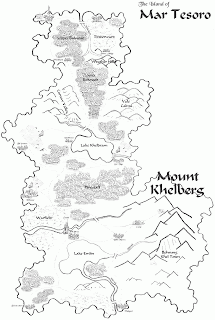This post comes about five months late. Part of this is because working on a D&D campaign has left me rather apathetic about writing in other arenas. A significant part of this, however, is that I was also reading Frank's dissertation, the source of the entire series, and I wanted to finish it before I wrote this addendum. I'm not that slow of a reader, just a lazy one.
In any case, the dissertation was a real eye-opener. It's interesting how something can transform from the original, academic document into the Bible-study style product that resulted. Frank indicated an interest to do more with the project; I do hope he turns the dissertation into a book, it's very well written.
Looking back at the series as a whole, an interesting picture begins to emerge. The problem we have, not just as Christians but as a society, is that we idolize work. It becomes a locus of identity, we expect it to be meaningful and fulfilling, both financially and personally. We extol the pursuit of passion and denigrate labor. We spend years of our lives and accrue incredible debt in the pursuit of degrees which facilitate work. Any efforts to change that path and pursue a new career seems daunting, enough to invoke indentity crises. On top of this, the people who are there to offer spiritual guidance frequently have a very different view of what it means to seek a career than those in other professions; a pastor describing how and why he chose to go into ministry is going to tell a story that sounds surreal to someone explaining why they chose to become an interior decorator.
It's really no wonder to me we have a screwed up perspective on vocation. We expect much of it, and yet treat it as an entirely separate category of life from faith. We frequently expect God to bless it as a venture without treating it like a consecrated activity. If this entire series could be summarized in one point, it would be that our career, our job, is supposed to be an extension of our faith. It is a powerful vehicle for serving God and loving our neighbor. When we forget this, we turn our vocation from a means to an end.
This is the very heart of the struggle I had in college, and I suspect many people feel the same way in that situation. You're trying to figure out what to do with your life. You expect the clouds to open up and a divine proclamation reveals the answer. There's a very real fear that missing out on this will not only mean you have missed out on God's intent for you, but that you are not truly serving him as you were meant to. How much of that thinking stems just from the way we talk about "calling?" It completely misses the point. It's not about what you are doing, but why, and how. A quote from the series, whose attribution I can't remember anymore, said, "God loves adverbs. He doesn't care how good, but how well." (Google tells me it might be Charles Taylor who wrote this originally.)
When this series started, I was cautious. In the aftermath of it, I'm thirsty for more. The entire approach helped me think about calling in ways I wish I would have ten years ago. I'm eager to explore it further, and I can't wait to see what Frank does with the material.


